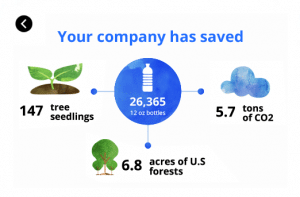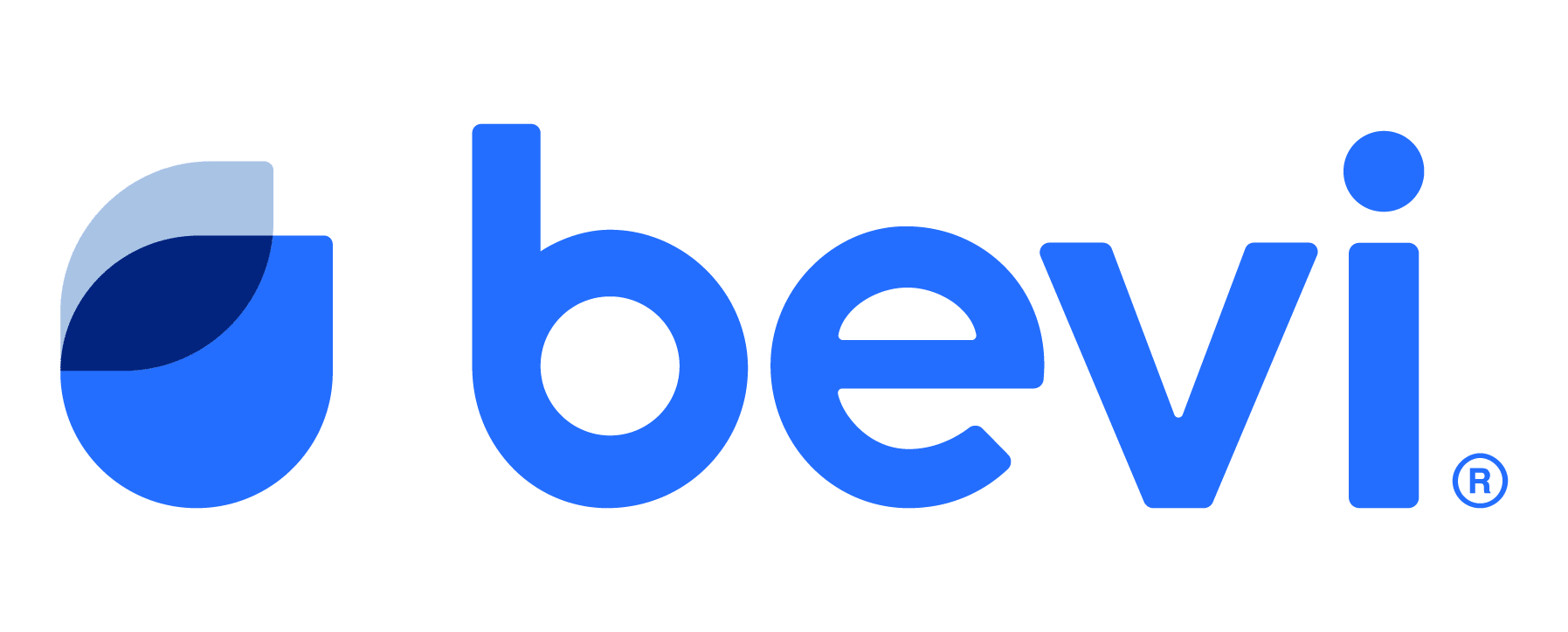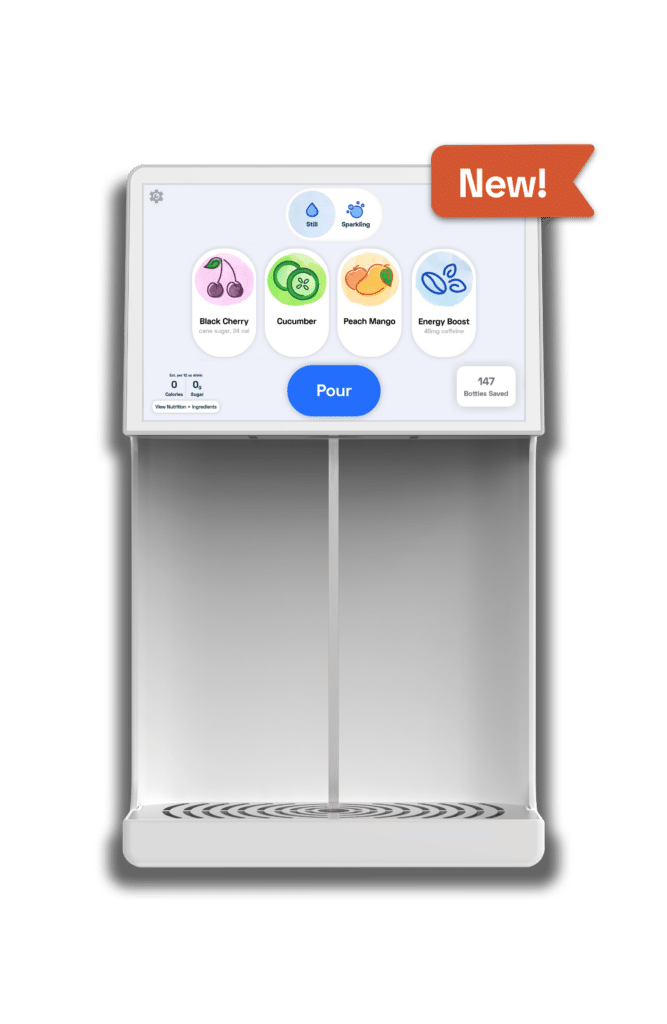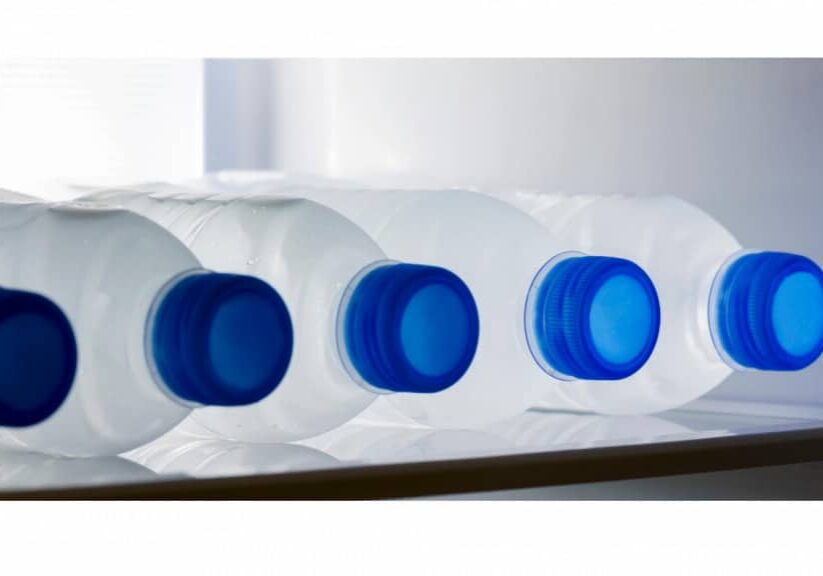In July of 2020, Bevi users reached a notable milestone: They helped save the planet from 200 million plastic bottles. Eliminating the need for plastic bottles and cans is a driving force behind the concept of the Bevi office water dispenser. So much so, that a user can see just how many bottles a particular machine is saving with a counter right in the Bevi touchscreen.

While that may be the most obvious indicator of a positive effect on the environment, there is more behind Bevi’s approach to supporting sustainability in the workplace.
The carbon-intensive process of bottling water
Before you ever grab a beverage at work, a good deal of energy has gone into getting that bottle of water into the office refrigerator. The source for more than half of all bottled water comes from springs and aquifers. Moving all that water to a bottling facility requires energy for pumps and trucks. The bottles it goes into also require significant resources to produce. In a 2007 study, the Pacific Institute found it took the equivalent of approximately 17 million barrels of oil to make all the plastic for bottled water consumed by Americans in 2006. That’s was enough energy to power 1 million vehicles for a year. More recent research at Stanford University in 2018 put the oil consumption number for plastic bottle production at 50 million barrels per year.
But that’s not the only area where fossil fuels come into play. Still more are used in transporting the 50 billion plastic bottles used each year in the U.S. from the manufacturer to the bottling facility.
Re-imagining a more sustainable supply chain
Finding a better way to do something often requires doing it differently. Point-of-use office water dispensers, such as those from Bevi, connect to an existing water line. From there, the water can be dispensed still, sparkling or flavored right into a glass or reusable beverage tumbler. This not only cuts out the need for plastic bottles and aluminum cans, it eliminates the substantial amount of fuel needed to source, bottle, and transport the water.
Building on a good idea
While point-of-use water dispensers are certainly more environmentally friendly, there are additional ways to shrink the carbon footprint of your glass of water. By connecting water dispensers to the internet, some manufacturers are able to monitor specific aspects of their machines, such as filter life and supply levels of flavors and CO2. With this information, maintenance and restocking calls can be more accurately scheduled, minimizing the fuel consumption of service vehicles.
In addition to using machine data to schedule flavor and CO2 refills, Bevi has made the service process even greener. Bevi uses flavor boxes made from recyclable materials that can also be easily recycled after use. And the flavor bags, which are made from recyclable #7 plastic, are accepted in some community recycling programs.
Sustainable hydration
There’s nearly universal agreement that staying hydrated throughout the day is important to staying healthy, feeling good, and being more productive. How each of us does that is a personal choice, but we believe a choice that’s good for people as well as the environment is one worth offering. It’s an idea that has caught on with many companies and their employees. You can read about them here. We’re proud to be part of our customers’ efforts to save 200 million plastic bottles and we continue to look for ways to help them stay healthy and be greener.





